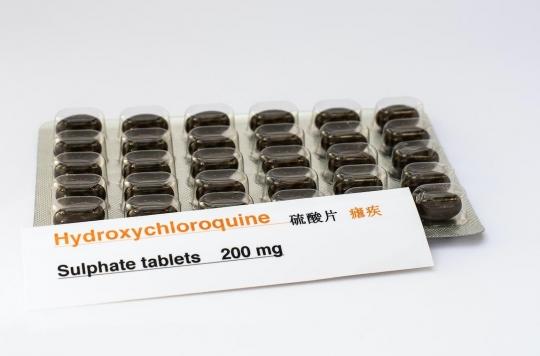Presented as a potential “miracle” solution to Covid-19, hydroxychloroquine has caused heart problems in several patients, some of which have been fatal.

Chloroquine continues to divide the scientific community. Cases of people with heart problems due to treatment with chloroquine to treat Covid-19 have been identified. Results that come as the team of Professor Didier Raoult, director of the Marseille University Hospital Institute (IHU), recently unveiled the conclusions of its second study on the effectiveness of chloroquine, confirming, according to him, the encouraging signs seen after the first study.
Cases of cardiac arrest
Several doctors have reported cases of patients with heart problems after treatment with hydroxychloroquine, used to treat Covid-19 infections. “Cases of cardiac toxicity have been reported in the region following the self-medication of Plaquenil (hydroxychloroquine) in the face of symptoms suggestive of Covid-19, sometimes requiring hospitalization in intensive care.reported the Regional Health Agency of Nouvelle-Aquitaine on Sunday March 29.
A report that echoes the words of the pharmacist of a large French university hospital, correspondent for the Pharmacovigilance Center in his region, who launched the alert on Friday March 27 with infectious disease specialists and pharmacists in his establishment. “Cases of positive Covid-19 patients present, under hydroxychloroquine associated or not with azithromycin (an antibiotic, editor’s note), rhythm or cardiac conduction disorders, cardiac arrests in other French hospitals.”
[#COVID2019] Situation as of March 29
???? Prevention and care measures for Travelers
???? Hydroxychloroquine self-medication and risk of cardiac toxicity ⚠️
???? 163 new confirmed cases, 558 hospitalized, 58 deaths
???? Read the press release: https://t.co/R3qE7Hx2AR pic.twitter.com/yKyYL83Wst– ARS New Aquitaine (@ARS_NAquit) March 29, 2020
Chloroquine can only be used on prescription from a doctor, as recently authorized by the government. In recent weeks, many testimonies have reported the wild use of this treatment while additional results are expected on the potential side effects. For patients who have experienced a cardiac reaction, the pharmacist has advised the Point than “these cases are being assessed” and “will then be sent to the ANSM (National Agency for the Safety of Medicines).”
A treatment to be avoided in many cases
As a reminder, chloroquine-based treatments, initially used as antimalarials, are not recommended in many cases. Professor Didier Raoult himself first reminded that this treatment must be used early in the disease. In addition, in people with heart disease, diabetes, epilepsy, Parkinson’s disease, potassium or calcium blood level disorders and porphyria, the use of chloroquine is strongly discouraged. Ditto for pregnant women who must avoid this treatment, as well as those who take other drugs such as citalopram and escitalopram, antidepressants (Seropram, Seroplex, etc.), the anxiolytic and antiallergic hydroxyzine contained such as Atarax or domperidone for nausea and vomiting.
.















